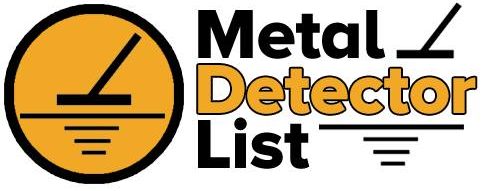Contents
10 Of The Best Spots To Hunt In A Park
[indeed-social-media sm_list=’fb,tw,goo,pt,li’ sm_template=’ism_template_1′ sm_list_align=’horizontal’ sm_display_counts=’true’ sm_display_full_name=’true’ print_total_shares=1 tc_position=’before’ tc_theme=’dark’ ]
Metal detecting has become a hobby for many because what is junk to one person is a treasure to another. Parks are among the best places to find these unknown, valuable treasures. Whether you are an experienced park hunter or just starting out, there are specific places you want to look around when visiting your local park and we are here to make you aware of those secret – and not so secret – spots!
Uncovering metal from the ground comes in all shapes and sizes. Metal detectors are commonly used for finding coins, but they also pick up on other types of metals including jewelry or keys.
Depending on your desired use, there are three common metal detectors to choose from. Finding a suitable one for you depends on your level of expertise and consequently, desired use.
In addition, have a metal detecting checklist handy to avoid forgetting anything back home. Getting to your desired location and realizing you forgot your bug spray or pinpointer can be aggravating.
Be sure to include water, snacks, a pouch for finds, headphones, and extra batteries on this list.
Types of Metal Detectors
Let’s touch base on the three different types of detector.
- Beat Frequency Oscillation (BFO) – this is the most basic type of metal detectors. It can find items up to two feet below the ground and because it is generally prone to mistakes (compared to others) it is inexpensive.
- Very Low Frequency Detectors (VLF) – this kind of metal detector is commonly used among experienced treasure seekers. They are highly accurate, sensitive, and are designed with heightened technology that make the hunting process simpler.
- Pulse Induction (PI) – this type of detector is used mainly at security checkpoints such as those in airports. They can search deep under surfaces for larger pieces of metal such as guns or weapons, hence are more expensive.
Now that you understand the different kinds of metal detectors available, let’s get to the best places to look for within a park. Keep in mind that hunting in old parks may be key to finding historic goodies such as old coins.
Don’t avoid these locations just because you assume not as many people encounter these places. As a professional park hunter, you want to consider all options and surroundings.
Consequently, don’t waste your time searching inside a park that involves an admission fee or a metal detecting license for use. Chances are these environments are occasionally cleaned so you won’t find much here.
Instead, visit your local parks where you know dozens of people visit a day. Arrive at a time with little to no people so that you can dig deep in specific areas and have a productive day hunting for gold.
Be aware of festivals or shows that may have taken place at your local park for these are some of the best times to find bundles of gold at a completely free cost!
Upon arriving to your local park, be sure to cover all the following areas – the most common one being playgrounds. This is the best place to look at a park. If there is a playground, chances are small children or parents may have dropped some coins or jewelry. Be sure to check around swing sets, slides, monkey bars, etc.
Video Park Detecting Tip Guides
Other areas to look within include:
- Picnic areas
- Basketball courts
- Trees
- Grassy areas
- Pools
- Ball fields
- Hills
- Volleyball courts
- Sidewalks
The ten spots that we’ve covered are bound to bring you a treasure or valuable find. Now that you know where to look keep a few house rules in mind. Be a good citizen and don’t hunt in crowded areas! If a park is full of playing children and conversing adults, it’s a good idea to come back when there is less commotion.
Also, don’t hunt at night for your safety! You don’t want to be confused for a criminal or worse yet, become the victim of one. By utilizing the tips & tricks mentioned above, you are on the road to becoming an expert in metal detection. So, grab your checklist, pack some snacks, and get ready to come across some valuable finds!
As always GL & HH
[indeed-social-media sm_list=’fb,tw,goo,pt,li’ sm_template=’ism_template_1′ sm_list_align=’horizontal’ sm_display_counts=’true’ sm_display_full_name=’true’ print_total_shares=1 tc_position=’before’ tc_theme=’dark’ ]
While I would say that I have detected in a park some years ago. Nowadays it is unlikely that one could get permission. However, wherever you want to detect you need permission. That is the first Golden rule of the hobby. When you have permission you don’t have to worry about some ‘Knowall’ giving you grief.